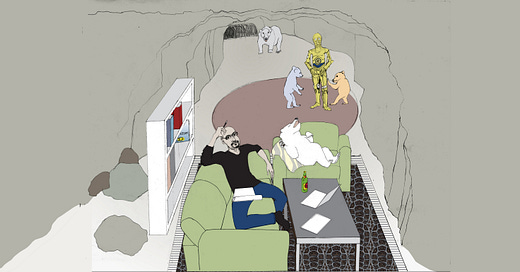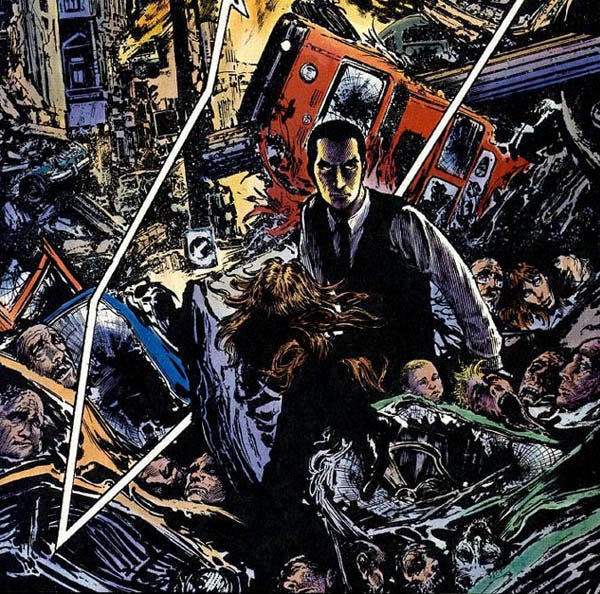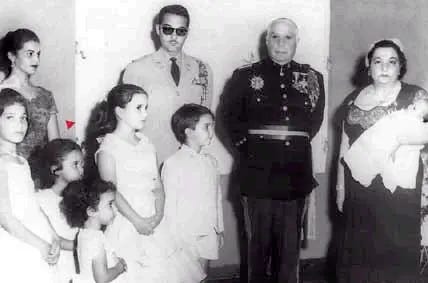During the pandemic – from the summer of 2020 to the summer of 2022, to be precise – I worked on a novel that I call The Martian Chronicle (for lack of a better title). I’d been trying to write a second novel for years and most of my attempts rarely survived past page 50. Something always felt off and it’s been a strange fault of mine that I’ve always listened to that instinct. This Martian one, however, seemed to have viability. I got up every morning and found myself writing – accompanied by soundtracks (Assassin Creed Valhalla got a lot of play) and always in the complete darkness of my office, the essential prerequisites of any work day.
The book was an oddity. While I’m one of those promiscuous readers who reads just about everything, I normally write fiction across a narrow band: I write A) about Dominican diasporic families doing what the Dominican diasporic families I grew up did or B) about a Dominican immigrant brother doing what the Dominican immigrants brothers I grew up were often wont to do. This novel was a complete departure; it was genre in the classical sense: halfway between science fiction and science fantasy, a mash-up of Graves’ I, Claudius, and Edgar Rice Burroughs’ A Princess of Mars, but filtered through my weird Glissant-esque counter-hegemonic sensibility. Our narrator was the last surviving member of an alien political dynasty of surpassing power and surpassing cruelty.
(When I look back on the project now, I realize what I was writing was another dictatorship tale except through the lens of a paracausal conqueror who has just had his world torn out from under him by an even more monstrous conqueror.
It was meant to be a very América tale, in every sense of the word.)
I could go on but why bother? I toiled on the book for 2 years and wrote nearly 600 pages and finally, finding myself at a point where it was time for readers I sent the pages out to a few. I tend to work a long time without letting anyone look at anything – I find that the best part of my writing only emerges when no one at all is looking – if I don’t spin a No-room about the work the work almost never happens—but even for me this was a long time. A little foolishly I had decided to try something new –to push through to the end of the draft before testing it for viability. It’s something that’s worked for some of my friends and after so many failures around writing novels I needed a new strategy.
Unfortunately, this push-on-to-the-end-no-matter-what didn’t work so hot for me.
I let some very clever people read what I had written and the general consensus was that I had a bad manuscript. How bad? One side you had folks who were like Perhaps if you rewrite every single word. On the other you had folks who were like burn the manuscript, pretend it never existed, start over. One of my favorite people in the world and an insatiable reader of genre couldn’t get through the first chapter and when I offered them a second chapter, in the hopes that it might prove better, they ran for the hills.
Not exactly the reaction I was hoping for.
After I picked myself off the floor, I re-read the manuscript and discovered to my bottomless dismay that my readers were right: the book was terrible.
That’s one of the perils of the writing life. You can give your mind your heart two years’ time to a project—only to end up with nonsense. It happens, perhaps not to the writers who write a book a year like it’s nothing, but it certainly has happened to me before. If as Clausewitz asserts “three quarters of the factors on which action in war is based are wrapped in a fog of greater or lesser uncertainty,” with writing the ratio is more like nine-tenths.
A massive blow, no doubt. A punch to the soul-mind with a two-year wind-up. But what can you do? King Canute couldn’t order back the tides and I couldn’t suddenly will my book beautiful. I put away the manuscript and stopped writing for a while. I read, I taught, I wrote pieces for the New York Times, I worked on a Dungeons and Dragons campaign but no matter how hard I tried I couldn’t bring myself to write fiction. It just wouldn’t happen. Some writers I know get hit by a shit-truck (and much worse) and their answer to the calamity is to write – I’ve never been that kind of writer. Perhaps it’s just my wiring or my relationship with my calling is too fraught. Who knows - in another universe, with different neurochemistry, I might have written much more than I have but this is this universe and I am who I am.
But that’s true in both directions. I might have trouble writing but I am, in the end, a writer. It’s been my deepest calling since I was in high school and attempted to write my first novel – a Stephen King rip-off – and despite all my tribulations it’s a calling that, for better or worse, has never left me alone. Which means in the last few months the urge to create, to put words on paper, characters in conflict, hearts into busqueda, has begun to re-kindle.
A month ago I found myself writing another one of my London Terrace stories. (London Terrace is the neighborhood in Parlin, NJ where I grew up, a mini-Queens sandwiched between Bon Jovi Sayreville and suburban Old Bridge) Another story that borrows a note or two from my childhood – a childhood so troubling (to me at least) that it's only through fiction that I’ve been able to approach it all.
I’ve also began to think about the Martian novel, again. I find myself taking notes on the characters, sketching new approaches and most crucially of all, deliberating if I should re-conceptualize the whole mess or just dump it and move on.
Because ain’t that the rub: I could try to fix the thing—which would require Frankenstein work, pilfering its textual grave for trunks and appendages and then, hopefully, reanimating the assembly into something approaching life. Ungainly and homely perhaps but still capable of poetry. Or I could spend another few months hitting the pages and the entire thing could fall apart again, inert, no matter how often I blasted it with my galvanic creativities.
How does one decide which path to take?
Fortunately, this isn’t one of those yes-no decisions that could alter your whole shit. I’m sure other folks would have their own approaches but given where my head is at and how I’m still over here thinking about my murderous Martians, best move for me would be to try the novel again for a few months and if there is no joy to be found there among the blasted wastelands then put it away (perhaps for good, perhaps not) and try something else.
That journey (and a few others) is what I’m hoping to chronicle here.
(For whatever reason the whole process has me thiking of Juan Llamas-Rodriguez’s concept of ruinous speculation except I’m not talking ruined borders here at all but the ruins of a book. The connection between the two is non-existent and yet that sometimes is how the mind works. In this case particular case what I’m engaged in is a type of ruinous deliberation, trying to devise a more life-affirming outcome for these particular literary ruins.)
But first, there’s some hard work ahead of me. I have to overcome my fear and reluctance; rediscover the joy and the play that ignited this project in the first place. Samwise is of some help here: “It’s the job that’s never started as takes longest to finish.” But more to the point perhaps is Octavia Butler who, talking specifically about writing, states: “If you want a thing — truly want it, want it so badly that you need it as you need air to breathe, then unless you die, you will have it.”
Whether this is true for this Martian book or not this account must show.
*
Now for some practical stuff:
THE PLAN
I intend to release StoryWorlds twice a week, minimum.
I will share my writing / worldbuilding strategies, exercises, homebrew tricks, will discuss the writers and critics and texts that propel and inspire my art. I will talk about the perplexing exhilarating intricacies of novel-writing and break down books / stories / movies / comics in ways that I hope will prove illuminating and generative.
Maybe I’ll even get around to talking about food.
USERS GUIDE
If you’re on the free list, you will receive a post a week and a taste of what’s happening behind the paywall, which is where we will be doing the nerdy dives and nerdy discussions -- where the wordcraft and worldcraft will get its most thorough exploration. Behind the paywall we’ll have special guests and Q&As and eventually weekly Office Hours to discuss matters that are important to subscribers. Please do join us if you have the interest and the means; we will be glad to have you. Please note that comments are for paid subscribers only.







Hell fucking yes man. As a longtime fan, I am so excited things are beginning to rekindle for you. We've missed you out here. Wishing you all the best and really, really looking forward to this space.
Estoy flipando. The Brief and Wondrous Life of Oscar Wao opened my eyes to how I can stay true to my code-switching experience. The English hegemony often makes us feel like the weird ones who need to adapt, but we're the majority, and our stories reflect the world's diversity. Mil gracias por coming to Substack.